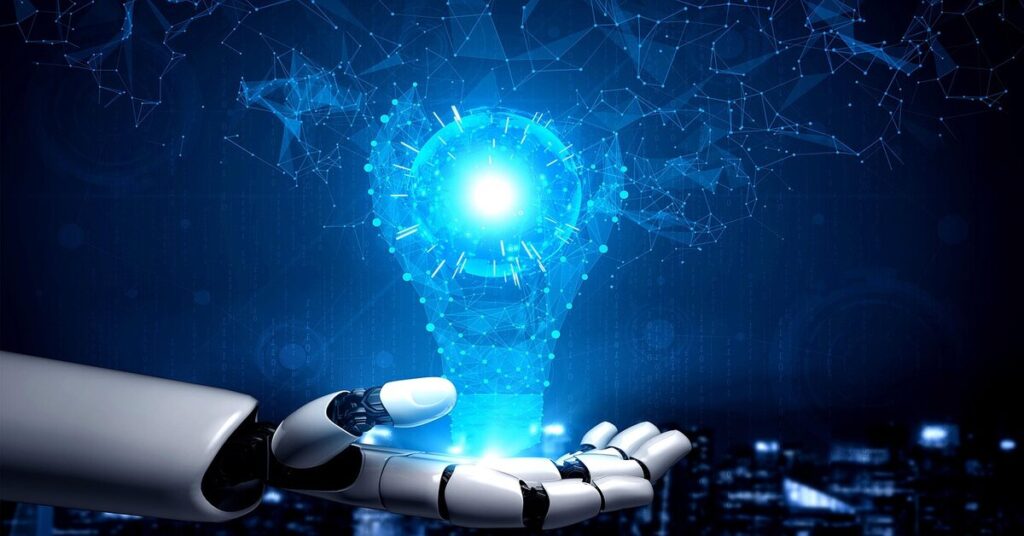Picture this: It’s 2 a.m., and Sarah, a DevOps engineer, is frantically debugging a server outage that’s costing her company $10,000 every minute. She’s drowning in logs, metrics, and alerts. What if she had a smart assistant that could predict the issue before it happened, automate fixes, and even suggest code improvements? Enter artificial intelligence (AI)—the game-changer for DevOps teams.
In this article, we’ll explore how a DevOps team can take advantage of artificial intelligence to automate workflows, enhance security, and accelerate software delivery. No jargon, no fluff—just actionable insights and DevOps AI ideas to future-proof your operations. Let’s dive in!
Table of Contents
ToggleWhy AI is Transforming DevOps: The Future of DevOps with AI
Before discussing the “how,” let’s address the “why.” Traditional DevOps is like driving a car with a blindfold: you’re moving fast, but you’re one pothole away from disaster. Teams juggle CI/CD, infrastructure management, security, and monitoring—all while racing against deadlines.
Here’s the reality: AI isn’t replacing DevOps engineers. Instead, it’s providing them with a powerful toolkit to automate repetitive tasks, optimize processes, and make data-driven decisions faster. This is the future of DevOps with AI—where automation meets intelligence.
Automating DevOps with AI: DevOps AI Agents at Work
AI-Based DevOps Tools for Automation
Nobody became a DevOps engineer to manually restart servers or fix typos in YAML files. AI-powered automation takes the grunt work off your plate.
- Example: Imagine your CI/CD pipeline. AI tools like Jenkins AI plugins can automatically run tests, flag errors, and even roll back deployments if something goes wrong—no more midnight Slack alerts!
- Real-World Anecdote: A fintech startup reduced deployment failures by 70% after integrating TensorFlow to predict integration issues in their pipeline.
Pro Tip: Start small. Use AI-powered log analysis or resource scaling with tools like Kubeflow to streamline DevOps in AI/ML workflows.
Predicting and Preventing Failures: Gen AI DevOps Use Cases
Predictive Analytics in DevOps
What if you could spot a system failure before your users do? AI-driven predictive analytics analyze historical data to detect issues like traffic spikes, memory leaks, or security vulnerabilities.
- Example: Netflix uses AI to predict streaming demand and automatically scale cloud resources. No more “Error 503” during Stranger Things marathons!
- Tool Alert: Prometheus + AI can monitor metrics and send proactive alerts like, “Hey, your database CPU will hit 100% in 2 hours. Fix it now!”
Transition Tip: Start with anomaly detection. AI tools like Elastic Machine Learning learn normal system behavior and flag outliers. This is one of the most practical Gen AI DevOps use cases.
Strengthening DevSecOps: DevOps vs AI in Security
AI for Security and Risk Mitigation
Security is no longer reactive—it’s proactive with AI. DevOps vs AI isn’t a battle; rather, AI strengthens security by detecting vulnerabilities and blocking threats in real time.
- Anecdote: A healthcare company avoided a $5M ransomware attack when their AI security tool detected suspicious login behavior and locked down the system.
- Tool to Try: Snyk uses AI to scan code for vulnerabilities before it goes live.
Action Step: Integrate AI into your SAST/DAST workflows. Use tools like Checkmarx to automate security scans and prioritize risks.
AI-Assisted Coding: DevOps AI Agents for Smarter Development
LLMs and AI-Based DevOps Tools
Large Language Models (LLMs) like GitHub Copilot aren’t just for developers. DevOps teams can leverage them to:
- Generate Infrastructure as Code (IaC) scripts (Terraform, Ansible) in seconds.
- Debug Kubernetes errors by asking, “Why is my pod crashing?”
- Automate documentation of DevOps workflows.
Fun Fact: A SaaS company cut deployment time by 40% by using AI to auto-generate Helm charts.
Overcoming AI Challenges in DevOps
Common AI Pitfalls and How to Avoid Them
While AI-powered DevOps is exciting, implementation comes with challenges. Here’s how to navigate them:
- Black Box Problem: If your AI decisions are opaque, teams and regulators won’t trust them. Fix it with Explainable AI (XAI).
- Data Quality Issues: Garbage in, garbage out. Clean data with tools like Trifacta before training AI models.
- Over-Reliance on AI: Always keep humans in the loop. Use AI for automation, not decision-making.
Pro Advice: Start with low-risk use cases like log analysis before applying AI to critical deployments.
Choosing the Right AI-Based DevOps Tools
Best DevOps AI Agents for Your Workflow
| Tool | Use Case |
|---|---|
| DuploCloud | Automate cloud provisioning with built-in AI guardrails |
| DataDog | AI-powered monitoring and anomaly detection |
| PagerDuty | AI-driven incident response |
Why DuploCloud? It’s like having an AI DevOps engineer on standby, automating AWS/Azure/GCP deployments while enforcing security policies.
The Future of DevOps with AI: Embrace the Change
Let’s circle back to Sarah. With AI, she’s no longer firefighting at 2 a.m. Instead, she’s sipping coffee while her AI assistant handles deployments, predicts bottlenecks, and even suggests code fixes.
Key Takeaway: AI isn’t here to replace DevOps teams—it’s here to make them superheroes.
Ready to Transform Your DevOps Workflow?
If you’re eager to harness AI but don’t know where to start, DuploCloud is your answer. Their platform bakes AI into every layer of DevOps, from infrastructure automation to security.
Why Wait? Book a demo today and see how AI can turn your team into efficiency ninjas. 🚀

